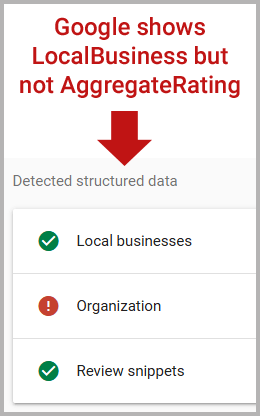Why Google’s Rich Results Tool Can Be Misleading via @sejournal, @martinibuster
Google's Rich Results tool may not be reliable for debugging structured data The post Why Google’s Rich Results Tool Can Be Misleading appeared first on Search Engine Journal.

A recent discussion in a Facebook SEO group highlighted how Google’s structured data testing tool can produce misleading results, making Schema.org structured data difficult to debug. This is why the tool falls short and why Schema.org provides a better solution.
This article doesn’t link to the private Facebook group discussion but it does provide screenshots from debugging the site that was discussed.
WordPress Plugin For Structured Data
The person who started the discussion said they were using a WordPress plugin to output their structured data. Someone pointed their finger at the SEO plugin, saying that the Schema.org structured data output by plugins isn’t good enough but that answer turned out to be incorrect. It may have been an issue with the structured data selected by the user, not the plugin itself.
Structured data plugins are useful for outputting structured data because:
1. It automates the tedious task of generating a Schema.org JSON-LD structured data script.
2. It automatically outputs structured data that is required by Google.
3. Plugins will automatically update all structured data when Google changes its requirements.
The only downside, as may have been the case in this situation, is if the user chooses a structured data that’s not appropriate for their content. This can happen, for example, if the correct version is LocalBusiness, but it requires a paid version of the plugin and the user selects another type of structured data, like AggregateRating.
Google Rich Results Tool Error
The person should have been using the LocalBusiness structured data but the code on the page was for AggregateRating. But when the person checked it on Google’s structured data testing tool it incorrectly showed that they were using the LocalBusiness structured data.
Screenshot Of Misleading Google Rich Results Test

The weird part is that Google’s tool enables users to view the structured data that’s in the HTML and it accurately shows that the web page was using AggregateRating, not LocalBusiness, Schema.org structured data.
Screenshot: Google’s Tool Detects Wrong Structured Data

The tool detects LocalBusiness structured data but that is actually something that’s nested within the AggregateRating structured data, which is not detected. What the tool is showing is related to rich results, but the label on the tool confusingly says it’s showing detected structured data.
Schema.org Structured Data Validator
The more accurate Schema.org structured data validation tool is the one provided by Schema.org, not Google.
Here’s the structured data that the official Schema.org tool detected:

Why Did Google’s Tool Fail?
What happened is that the website was using the AggregateRating structured data to review their local business. Google’s Rich Results Test tool mistakenly identified the LocalBusiness structured data and ignored that the script was really about AggregateRating.
The official Schema.org validator accurately identified the structured data.
This doesn’t mean that Google’s tool is broken though. I think what’s happening is that Google’s tool has a functionality that may be limited to testing for whether a website’s structured data qualifies the page for rich results, which is why it’s called the Rich Results Tester. It maybe doesn’t validate the structured data so if you want to accurately debug your code then it’s probably a good idea to give the official Schema.org tool a spin.
If you’re having trouble debugging structured data and reading HTML isn’t a part of your skill set you may want to give the official Schema.org structured data tool a try, it may help you better understand what’s wrong with your structured data.
Maybe it’s time SEOs and publishers add the official Schema.org Structured Data Validator to their list of tools to use.
Featured Image by Shutterstock/Viorel Sima

 FrankLin
FrankLin 






























